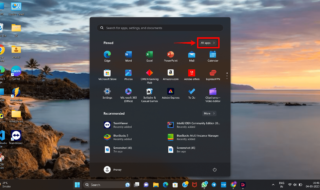At the heart of this evolution lies managed mobility services, which encompass managing and providing mobile devices, applications, and services to enhance productivity and collaboration among remote teams. These services streamline device management across different platforms and locations and ensure data security and compliance, which are critical in a remote work setup.
By leveraging our managed mobility services, businesses can effectively navigate the complexities of remote work environments, ensuring seamless operations regardless of where their employees are.

Contents
Empowering Remote Workspaces with Managed Mobility
Managed mobility provides much more than merely enabling remote work—it acts as a strategic resource that can radically change how companies function, contend, and succeed in today’s digital world. By implementing a holistic strategy for overseeing mobile devices and apps, businesses can guarantee their employees have safeguarded and effective access to the tools required, any time they’re need them, regardless of location.
This comprehensive approach allows organizations to transform their work by empowering staff with on-the-go access. Whether collaborating with colleagues from home or serving customers on-site, representatives stay consistently connected and productive. With managed mobility supporting a mobile workforce, enterprises attain a competitive edge through optimizing productivity and cultivating happier, more engaged remote teams.
Seamless Connectivity and Collaboration
Managed mobility solutions can meaningfully help remote employees stay connected to their workplaces. When the necessary tools are provided, workers can easily gain access to essential programs and team up with associates worldwide. No longer do remote employees struggle with unstable connections or spotty access to critical work files and tools. Instead, they benefit from smooth linking to their digital workspaces from any location. This consistent connectivity noticeably lifts productivity as employees waste less time troubleshooting tech issues.
Enhanced Security and Compliance
With many employees now working remotely on a regular basis, protecting digital workspaces from potential security threats has become critically important. By implementing robust security measures, managed mobility services directly confront this challenge by safeguarding all devices and information against unauthorized access and cyberattacks.
Through establishing robust security protocols, businesses can feel assured that their data and networks are fortified regardless of location. Beyond bolstering protection, managed mobility also helps organizations adhere to regulatory compliance standards. This mitigates legal and financial risks organizations may face from data breaches or noncompliance. By leveraging managed mobility’s comprehensive security framework, companies can continue operations smoothly while addressing modern-day safety concerns within remote work environments.
The Future of Work: A Digital, Distributed, and Dynamic Model
The future of work is undoubtedly digital, dispersed across various locations, and ever-changing, with managed mobility solutions playing a vital part in making this a reality. As more companies allow employees to work from remote locations, the need for managed mobility services is predicted to significantly increase. This growing demand will likely spur technological advancements that better support flexible and productive remote working arrangements.
Remote employees will have improved access to the tools and technologies required to perform their roles outside of a traditional office setting. Organizations may also streamline operations to integrate mobile workforces seamlessly. Overall, managed mobility will continue enhancing remote work environments so businesses can reap the benefits of a distributed, digitally connected workforce for years to come.
A Shift Towards Digital Workspaces
The transition towards digital work environments has rapidly increased pace, with managed mobility as a foundation. This change mirrors not only technological advances but also a more comprehensive cultural shift towards integrating work and personal life, as boundaries separating professional and private spheres have become more indistinct. Managed mobility facilitates this integration by supplying the instruments and innovations that endorse a more adaptable and reactive work style.
It allows employees to access the resources needed to complete tasks from any location using private or public devices. This benefits individuals and organizations by supporting a balanced approach where productivity remains high yet flexibility is also provided. The adoption of digital workspaces through managed mobility helps both accommodate modern lifestyles and remain competitive in a landscape where client demands are constantly evolving.
The Role of AI and Automation
Looking ahead, the incorporation of artificial intelligence and automation into managed mobility services will further transform and remote workspaces. These emerging technologies aim to simplify device administration, strengthen protections, and customize the user experience. Such technologies have the potential to streamline previously tedious management tasks. For example, AI could automate routine security updates and app installations. This would save IT teams valuable time that could be reallocated to more strategic work.
Additionally, AI-powered personalization of the tools and interfaces workers rely on remotely could improve their productivity and satisfaction. If messaging and collaboration apps are adapted to individual preferences and work styles, remote employees may feel even more engaged with teammates. Overall, the integration of AI and automation promises to elevate the efficiency, effectiveness and experiences of those who work from outside the traditional office setting. Remote work is likely to become
Conclusion
The transformation of remote workspaces through managed mobility solutions is more than a passing phase; it represents a significant change in how we think about work and structure our careers. As companies and employees navigate this evolving work environment, the significance of managed mobility services cannot be understated.
They furnish the needed infrastructure and protections for distributed employment but also empower organizations to adjust to and flourish within this progressively digital landscape. The future of employment is present here, and managed mobility lies at the leading edge, molding a more adaptable, productive, and protected employment setting for everyone.



